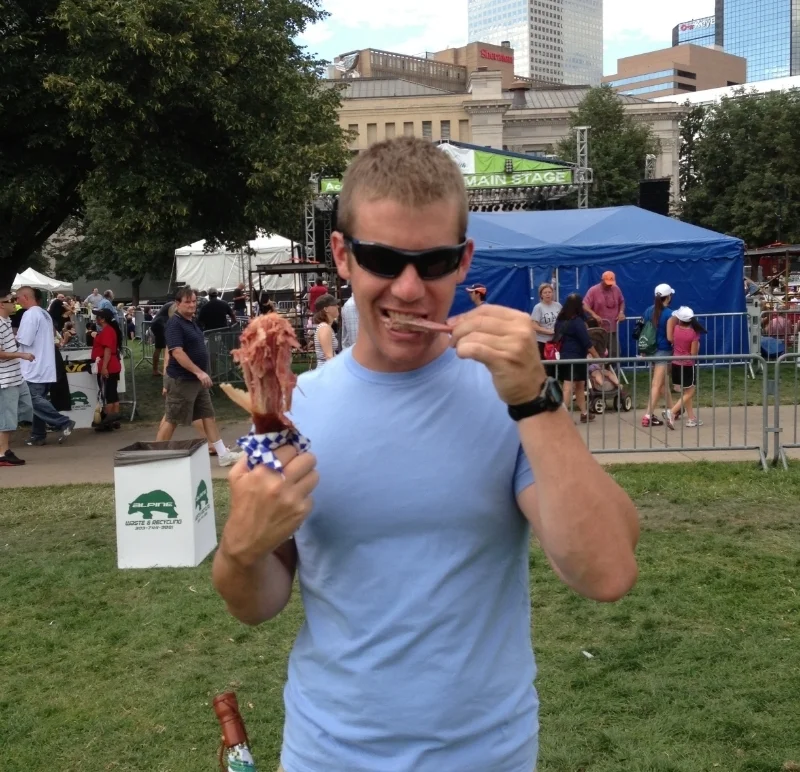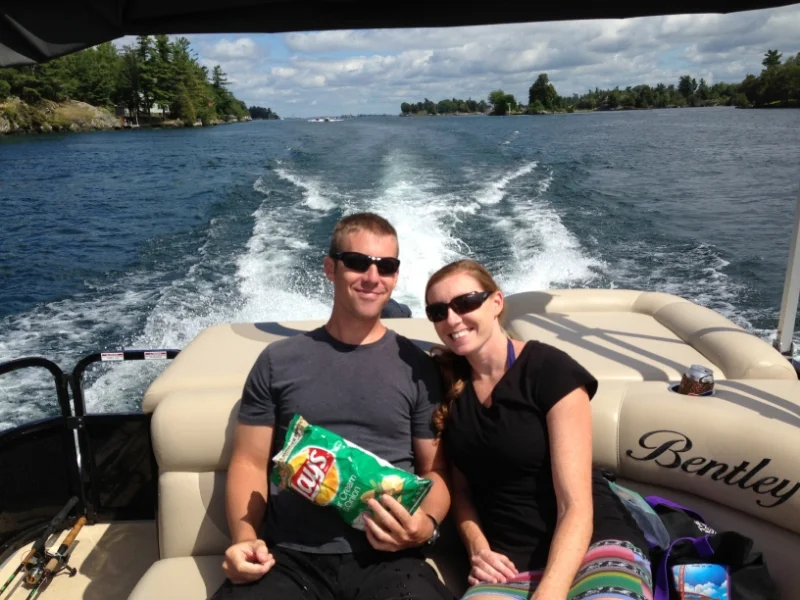My Background
My name is Todd M. Weber, PhD, MS, RD and I went to school for a long, long time. Along the way I obtained several degrees and an extensive amount of knowledge in nutrition and exercise science. I am originally from Wisconsin and I obtained my undergraduate degree in Dietetics from the University of Wisconsin-Stout. I then went on to complete a dietetic internship through the University of Houston in Houston, Texas. I picked up the “RD” which stands for registered dietitian after passing the registered dietitian examination. My next stop was at Iowa State University where I went on to complete as Master of Science (MS) in Kinesiology with an emphasis Exercise Physiology before traveling to North Carolina to obtain my PhD in Bioenergetics and Exercise Science from East Carolina University. These educational opportunities have provided me with a very strong academic and theoretical background and I know the nutrition and exercise scientific literature quite well. I knew that I needed to educate myself and become an expert in these areas before I could help others make sense out of the exercise and nutrition fields.
Todd after a successful dissertation defense with girlfriend, Kathleen, in May 2013.
During and after my undergrad I found myself constantly frustrated with the never-ending health and fitness claims being made not only in gyms, but in the media as well. To be able to determine whether these claims were fact or fiction (by the way, the majority are fiction) I went to Iowa State to get a Master’s degree in Exercise Physiology. I thought that doing so would provide me with the answers to all the diet and exercise questions I had. I would finally be able to establish exercise fact from fiction and spread the ‘truth’. The two years at Iowa State taught me a tremendous amount, however, it had the opposite effect of what I had intended my education there to do. Instead of getting the answers I so desperately sought, I now had more questions than ever. When you dig deeper and deeper into these health claims, you don’t necessarily get answers; you get more and more questions. What I began to find during my time at Iowa State was that many of the nutrition and exercise claims out there are half-truths and these half-truths are then taken and exploited for profit. At this point, despite being highly educated in exercise science, I still was not 100% sure of the validity of many of these claims and knew that I needed to dig deeper yet, down to the cellular level.
East Carolina University (ECU) has a great program in Bioenergetics, or to the lay individual, cellular metabolism. I knew I needed to get in even deeper to get the answers I so desperately sought so I applied to ECU, and long story short, I graduated with a PhD in Bioenergetics and Exercise Science after five years of intense study. Finally, I would say that I have more answers than questions and have the sound scientific reasoning required to determine fact from fiction. There will always be questions to answer, but I found the depth of knowledge I was looking for and the answers to the questions that you and I have about nutrition and exercise. Now, to be honest, there is probably more that I don’t know than I do know out there about nutrition and exercise. Making that statement is not an admission that I don’t know what I am talking about, rather, it is a level of comfort in knowing my own limits and being confident that I know where to look to find the answers I am seeking.
My Nutrition Philosophy
Todd enjoying a turkey drumstick at the Taste of Colorado Festival in Denver, CO.
Todd and Kathleen in Thousand Islands New York enjoying the beautiful water and some Lays Sour Cream and Onion Chips
One of the things that drives me crazy regarding articles magazines such as Women’s Health, Men’s Health, Prevention, Runner’s World or in health promotion company flyers, handouts, and policies is the lack of referencing. What do I mean by that and why should you care about it? How does the lack of referencing affect you? The lack of referencing affects you because now the author of these magazine articles or health promotion handouts can make any claim they want to make to you without providing the evidence and rationale behind the claim. You have no basis to question the information they are giving to you because they are not providing you with the original literature. You do not have a leg to stand on to argue with them. For example, I could tell you that a high protein diet for weight loss will cause your kidneys to fail so you should never eat a high-protein diet. I also back up my claim by saying that this study was published in the respected journal, the Journal of Applied Physiology Nutrition & Metabolism. Wow, sounds legitimate right? Well maybe, maybe not. If the link to actual article or the article itself is never provided then you have no means of seeing what the original author’s conclusions may have been. Oftentimes the primary author’s conclusions are either a) very different or b) much more tempered than what is presented in the secondary source (e.g., the magazine). If you were to read the original conclusions of the high protein diet paper they may read something like this, “High-protein diets are not recommended in overweight African American males with existing kidney disease over the age of 65 due to the diet’s negative effect on kidney function.” If you are not an overweight African American male over the age of 65 with pre-existing kidney disease a high protein diet may not be so bad for you. However, the author of the magazine is not telling you all the facts. It is unacceptable to “cherry pick” the parts of the article that support your argument. There are a number of reasons why this happens, which is another discussion in and of itself. My point is, that when it comes to nutrition, health, and wellness claims, I ask you to remain skeptical. Be the difficult client. When someone makes a claim, say, “show me.” Meaning show me the scientific evidence that substantiates this claim to be accurate. If that individual cannot do that, then I do not believe them. Now, I know that asking you to substantiate every health claim in everyday life is not really feasible and it is mentally exhausting. This is where I come in. I am that individual who is skeptical of the health and wellness claims, I am highly educated in these areas, and I can help you decipher what exercise and nutrition practices will work best for you
My Agenda
One of the things that I have learned throughout my academic journey is that everyone has an agenda. Just because there is a published paper or two (or three) does not necessarily mean that it is the only truth. Just as there is a certain degree of “cherry picking” from individual articles, the same unacceptable practice commonly occurs when magazine or internet article authors chose to only show the articles that support their viewpoint. Recently I have seen a number of scientific articles as well as blog posts promoting things such as high protein diets or dispelling nutrition myths. Much of this work is good and the authors cite sound scientific research. However, it is what they are not telling you that bothers me. You can build a pretty compelling case for something by including certain information and interpreting that information without acknowledging the other side. I am not a straddler and I do have strong positions on some topics, but I am not in favor of saying that something, whether it be high protein diets, small frequent meals, vegan diets, protein sparing fasts, glycemic diets, low-fat diets, organic diets, high-intensity interval training, yoga, or Crossfit is the be all end all and the best way or the only path to a healthy lifestyle. There are many, many paths to a healthy lifestyle. All of the options that I just mentioned are simply tools to achieving that lifestyle. This is why my agenda, if I were to say I have one, is to use a variety of tools, specific to your preferences, to help you achieve the healthiest and most satisfying lifestyle you can in order to reach your optimal self. To me, it does not matter what path you choose to get there, just as long as you do get there. If I can help you achieve your goals please let me know, I would really love to.
Todd M. Weber, PhD, MS, RD






